Cost of Living in Wellington, New Zealand [2024]

Back in 1991, Wellington’s city council hired an advertising agency to come up with a slogan for the city. The result was a simple phrase: absolutely positively Wellington. Anyone who actually lives in this brilliant city would probably just call it absolutely positively windy. Windy Wellington is an amazing little city that doesn’t feel all that small. But if you want to call Wellington home, how much money will you need?
A single person should budget around NZ$1,800 per month (excluding rent) or NZ$4,200 including the rent, with a family of four needing around NZ$6,337 (minus rent or mortgage repayments), and university students can get by on far less – around NZ$2,500 per month including rent. The average rent ranges from NZ$600 per week for a simple two-bedroom house to NZ$850 for a nicer home.
Wellington is one of the best cities to live in New Zealand. But it has its cons such as higher cost of living and crazy wind. Yet, once you’ve gotten used to the wonderfully moody weather, you’ll definitely want to make your home in NZ’s capital. It would help to know exactly how much money you’ll need to get the very best of wonderful, windy Wellington.
Also read: Pros and cons of living in Wellington.
How expensive is living in Wellington?

Wellington is the second most expensive city in New Zealand (with Auckland taking the prime spot). This information can be misleading, though, since Wellington ranks relatively low amongst global cities when it comes to the cost of living. A 2023 ranking listed Wellington as the 97th most expensive city to call home, so it could be much worse!
The average cost of living for a single person living in Wellington is between NZ$3,500 and NZ$5,000 and between NZ$7,000 and NZ$9,000 for a family of four.
As is the case anywhere in the world these days, the majority of your expenses will go towards rent or mortgage payments, and you can save money by not living in Wellington itself but in a nearby town like Upper Hutt or Lower Hutt.
Wellington’s geography (between the hills and the seas) means that it’s not a huge city since there’s nowhere for it to grow. There are a few satellite towns, which are practically extensions of Wellington.
Your basic utilities should cost around NZ$292 per month, covering electricity, heat, rubbish collection, and water usage for an average household. Water and rubbish collection are included in the council rates you pay as a homeowner or are factored into your rent (and shouldn’t be charged separately).
Expect to pay an additional NZ$155 per month for internet and a mobile phone plan. Yes, these costs may be significantly higher or lower depending on your needs.
A good chunk of your expenses will go towards your entertainment expenses, like dining out. Wellington has an estimated 882 restaurants (which is one for every 236 residents). By comparison, New York has one restaurant for every 460 residents. Wellingtonians sure like to eat out, and you can expect to pay NZ$135 for a meal for two at a mid-priced restaurant.
Wellington is one of the rare places in NZ where you could (possibly) get by without a car. There’s a decent public transport network, primarily using buses, ferries, and trains.
The cheapest public transport is with a Metlink Snapper card (for buses and trains only). The price of a 30-day pass depends on the number of zones you travel through, with a one-zone pass costing NZ$55.20, ranging all the way up to NZ$478.50 for a 14-zone pass.
Wellington’s cultural and entertainment scene is out of balance—in a good way. It’s strange that a reasonably small city (an urban population of only 220,000 residents) has so much culture. It doesn’t have to bankrupt you either. Te Papa (the Museum of New Zealand) offers free admission, or if you fancy a movie, expect to pay around NZ$20 per ticket during peak periods.
Housing costs in Wellington
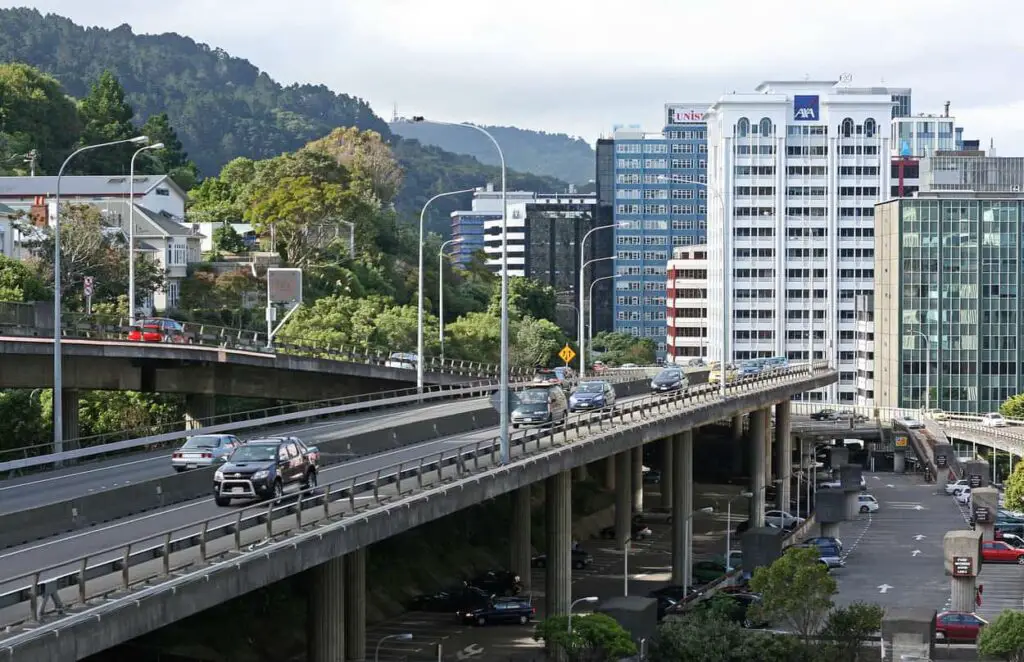
The downside to Wellington is that there’s a lot of competition for accommodation – especially rentals. Finding your dream home in NZ’s capital might not happen as quickly as you’d like, but it will happen.
One thing you’ll notice about living in New Zealand is the lack of apartment buildings. Yes, there are many blocks of flats, but not so many of the high-rise apartment buildings you see in Asia and the United States. And yet, if you’re a single person, a one-bedroom flat in the central city for around NZ$450 per week isn’t necessarily that expensive.
The more bedrooms you’re after, the more competition there is. NZ remains the sort of place where people are more likely to want a house with a backyard instead of a flat. But if you’re looking for a two-bedroom pad in a central location, you’ll be paying about NZ$650 per week. A three-bedroom flat in downtown Wellington costs around NZ$915 per week.
NZ isn’t a nation of renters, and home ownership remains the dream for most Kiwis. The median house price for the city is NZ$795,000 in October 2023. Interestingly, downtown Wellington is lower than the median, although you’d need some time to find a decent house and land in the central districts. But with downtown Wellington’s median price of only NZ$460,550, you’ll probably be happy to make the time.
As a general rule of thumb (which shouldn’t be surprising), the most expensive districts are those closest to the harbour (like Seatoun).
Cost of living in Wellington for students
An average university student may not be able to afford to live in Seatoun or another glorious harbourside location, but you don’t need to live in the middle of nowhere. You may not want to go to the expense and responsibility of renting your own place and might be more interested in a flatshare type of arrangement. You can rent a room in central Wellington for NZ$290 per week.
Overall, a typical student spends between NZ$2,000 and NZ$3,500 per month studying and living in Wellington. Your major expenses are housing, food & drinks, transportation, clothes & shoes, telephone bill and occasional stationery purchases.
Your university student card makes life simpler in many respects. You receive a discount of 25% on public transport (when using a Metlink Snapper card). You can also get discounted movie tickets and cheap entrance to certain attractions, like the Wellington Zoo.
Anyone studying in New Zealand should sign up for the StudentCard (which costs NZ$20 per year). It gives you massive discounts on a number of products and services, which can come in handy. Even though Wellington isn’t the most expensive city to study in, student life is usually a budget life.
Cost of living in Wellington for singles
Single Wellingtonians can enjoy some of the same cost-saving advantages as students. You don’t necessarily have to maintain your own home and can rent a room in a flatshare. As mentioned, this costs around NZ$290 per week in the central city, but if you work in the outer districts, you can rent a nearby room even more cheaply (for as little as NZ$200 per week in a four-bedroom house).
NZ$4,805 is the average total cost of living for a single person living in Wellington. However, if you are studying and don’t have a job, you can get by on as low as NZ$2,500 per month.
However, in January 2023, Statistics New Zealand released a study showing that single people spent an average of NZ$645 per week (NZ$2,580 monthly) on their living expenses (including rent), when in fact, couples only spent an average of NZ$625 per week each. When it comes to life in Wellington or another NZ city, it can pay to have a partner.
Cost of living in Wellington for couples
A couple living in Wellington will need at least NZ$4,000 to cover the basic expenses. A budget starting from NZ$5,000 is a good amount.
A typical rent for a two-bedroom house starts at NZ$645 per week. The average cost of groceries for a couple living in central Wellington is NZ$282 per week. Lastly, an average utility bill for two people comes to NZ$228 per month.
It may not be prohibitively expensive to live in Wellington, but it can be even cheaper for a couple to rent a one-bedroom flat and split the costs. Of course, a lot depends on lifestyle and whether you’re planning to start a family (with more about the cost of living for families in just a moment).
It’s possible for a couple to live comfortably on a moderate income in Wellington, especially if you don’t have children—and therefore have more disposable income. A couple can save considerable money in Wellington by living centrally (somewhere like the central city, Mount Victoria, or Newtown, amongst others) and walking to most places.
Cost of living for families
The average cost of living for families in Wellington is between NZ$7,000 and NZ$9,000 per month, depending on the size of your family. Average rent for a three-bedroom house in a good neighbourhood is NZ$$850 per week.
There’s no huge leap from calculating your Wellington cost of living as a single to your cost of living as a couple. When children enter the picture, those costs can become quite different. In addition to the increased rental costs (or mortgage repayments) for a multi-bedroom property, you need to consider childcare costs.
Private preschool (or kindergarten) averages NZ$1,367 per month (per child) in Wellington. This means that a family of four (with two children) can be paying NZ$2,734 per month. Don’t worry—there are better value options in Wellington.
Eligible residents in New Zealand can receive the early childhood education (ECE) subsidy. This permits 20 hours of free kindergarten placement per week. You simply pay an extra fee for any excess hours.
Your grocery bills as a family will also take a considerable chunk of your weekly income. A lot of the cost depends on your own grocery preferences, but a family of four living in Wellington should budget at least NZ$373 per week (or NZ$317 for a family of three).
How much money do you need to live comfortably in Wellington?
The question of how much money you’ll need to live comfortably in Wellington leads to another question: what’s your idea of comfort? The average monthly expenses mentioned earlier (according to the Numbeo cost of living index) are NZ$1,800 per month for a single person or around NZ$6,337 per month for a family of four (both excluding rent).
Rent prices in Wellington
Average rent for a 1 bedroom apartment is NZ$510 per week while 1 bedroom house will cost you NZ$480 per week. Median rent for a two-bedroom house is NZ$645, and three bedrooms cost NZ$850 per week. If you are willing to compromise and rent just a room, be prepared to pay NZ$315 per week.
When you factor in accommodation, you get a better idea of how much you’ll have to earn each month to be comfortable. Say you’re a single person living in a one-bedroom flat in central Wellington, where you pay NZ$415 per week (or NZ$1,660 per month). This means you will need to earn a net salary of at least NZ$3,460 per month – or more if you want to have savings left over at the end of each month.
Average salary in Wellington
Fortunately, you can have something left over since the average (gross) salary in Wellington is NZ$78,649 annually. We’ve already identified NZ$80,000 as a good starting salary for life in NZ’s capital, so you should aim for a slightly above-average salary in Wellington for a truly comfortable life.
Cost of living in Wellington vs Auckland
There’s a friendly competition between Auckland and Wellington about who is the best city. Auckland is bigger, but is bigger better? And more importantly – is bigger cheaper? Let’s explore the comparative costs between the two premier cities of New Zealand’s North Island.
The average cost of living for a single person in Auckland ranges from NZ$4,200 to NZ$5,500, in Wellington, it’s between NZ$3,500 and NZ$5,000 per month.
Consumer prices in Wellington are 1.8% lower than in Auckland (excluding rent). And yet, consumer prices in Wellington are 1.3% higher than in Auckland when rent is included. If you can find inexpensive housing in Wellington, your overall consumer prices will be lower.
Eating out in Wellington is 12.5% more expensive than in Auckland. This is for a mid-range restaurant (fast food dining has the same average cost in both cities).
Home rental prices in Wellington are (unfortunately) higher than in Auckland – 7.9% higher, to be precise. However, your yearly mortgage interest rate is 5.9% lower in Wellington than in Auckland.

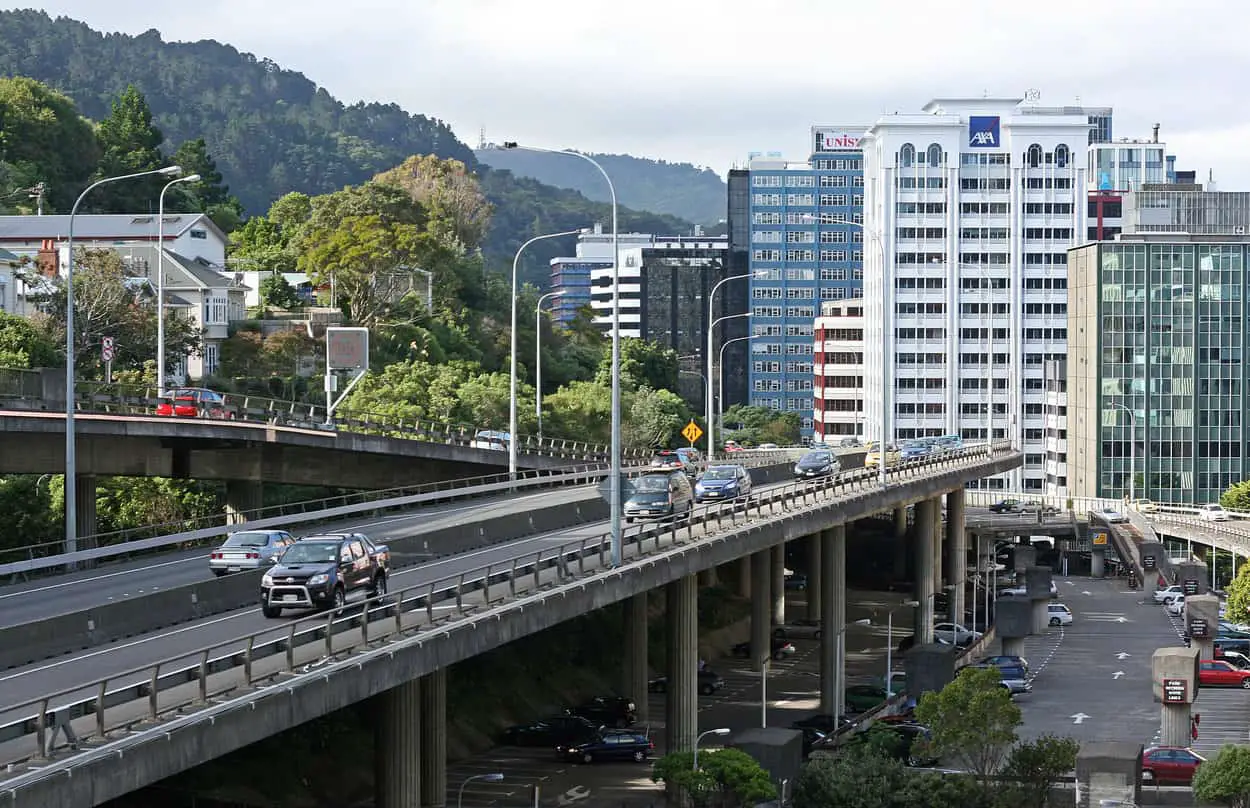
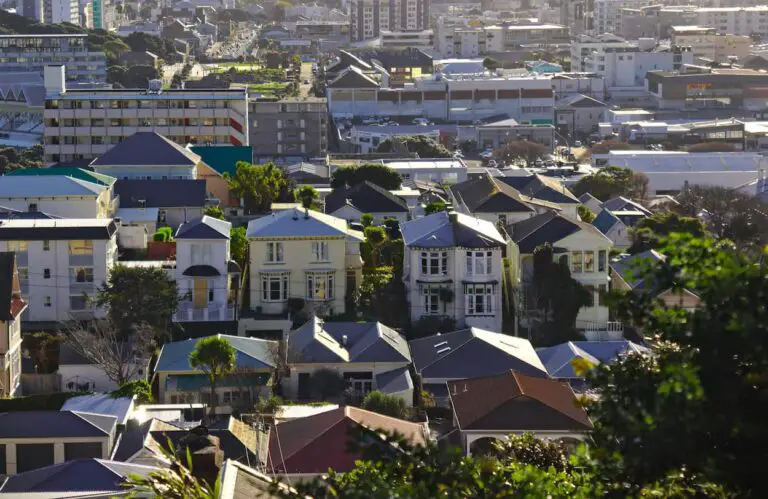
![Cost of Food in New Zealand: How Much To Budget? [2024]](https://simplenewzealand.com/wp-content/uploads/2023/01/Depositphotos_363854088_L-768x512.jpg)
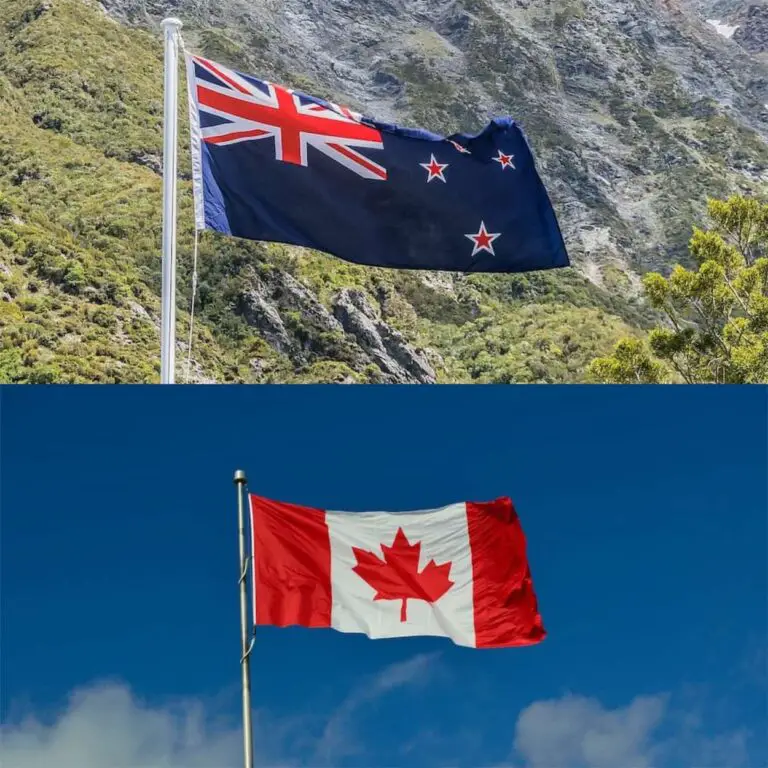

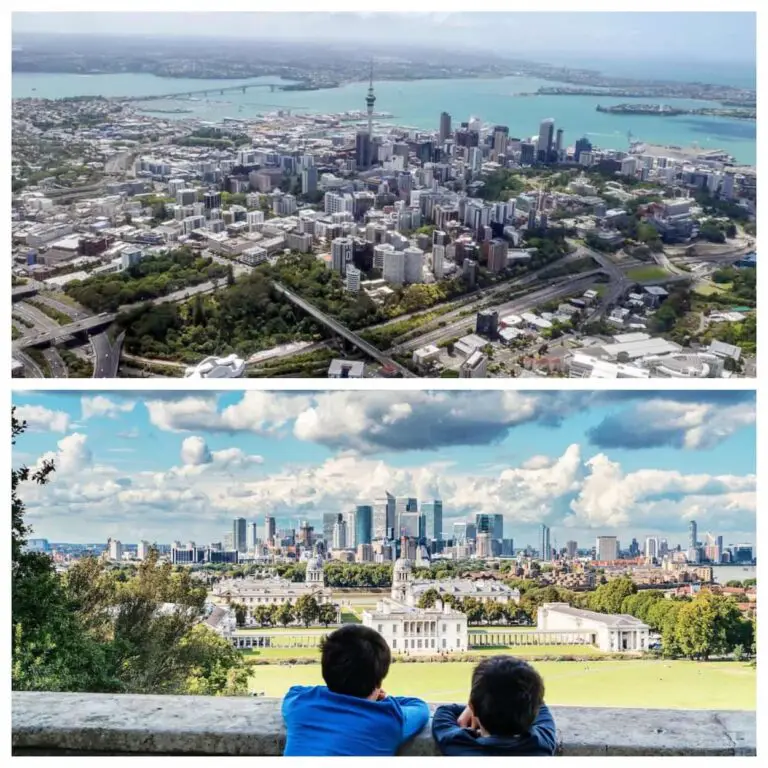
![Cost of Living in Australia vs New Zealand [2024 Guide]](https://simplenewzealand.com/wp-content/uploads/2022/11/Depositphotos_5819207_L-768x531.jpg)